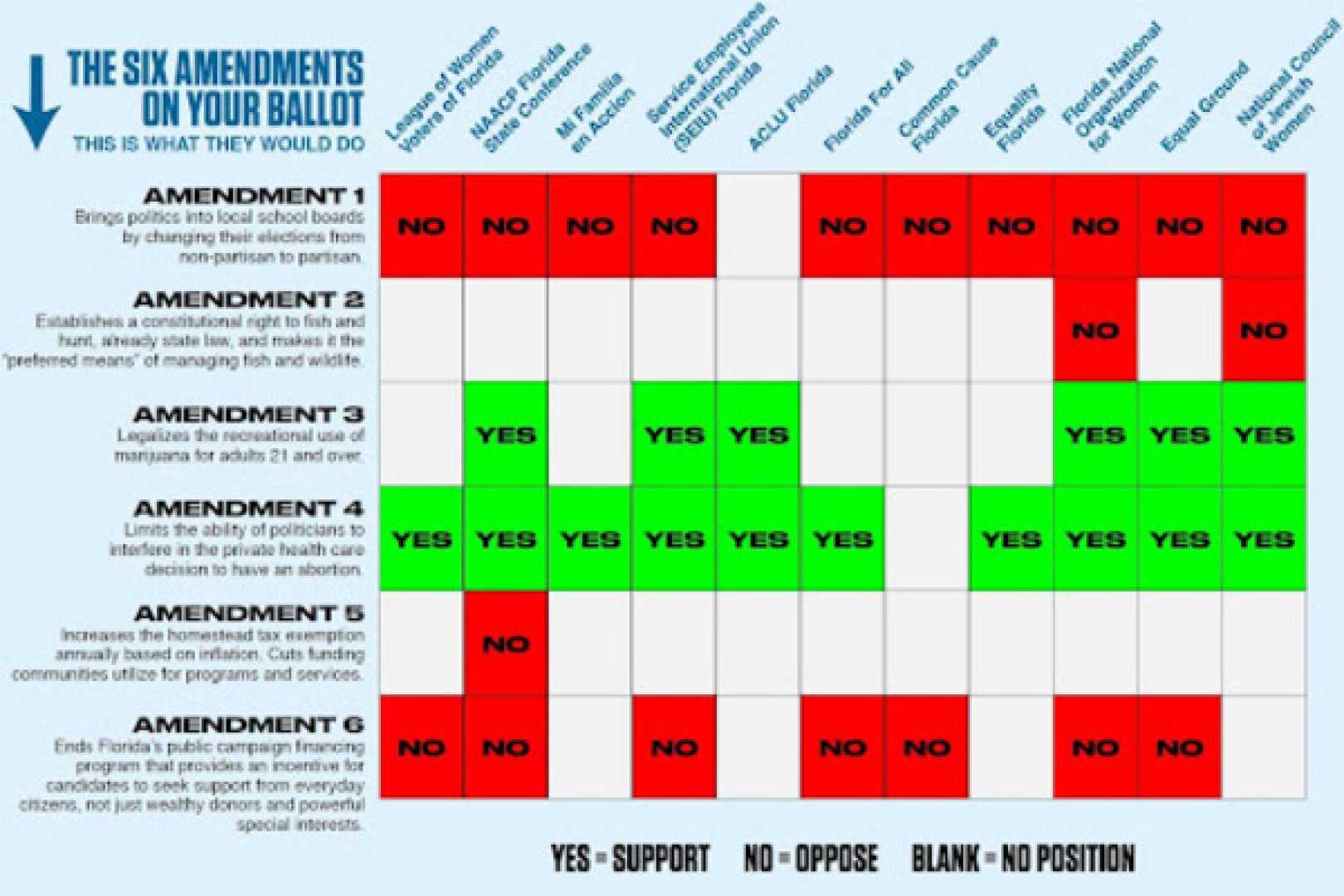News
Florida Voters Decide on Six Key Constitutional Amendments in 2024 Election

On November 5, 2024, Floridians are set to vote on six significant constitutional amendments, each requiring a 60% supermajority to be approved. These amendments address a range of contentious issues, from partisan school board elections to abortion rights and recreational marijuana legalization.
Amendment 1 proposes to make school board elections partisan, starting with the 2026 November general election. This change would allow for partisan primaries to select school board candidates, potentially altering the political landscape of local education governance.
Amendment 2 aims to enshrine the right to hunt and fish in the state constitution, declaring these activities as the preferred means for managing and controlling fish and wildlife populations. Despite current protections under Florida Statute 379.104, supporters argue this amendment is necessary to safeguard these rights against potential future threats.
Amendment 3 seeks to legalize recreational marijuana for adults aged 21 and older. This initiative has garnered significant attention and financial backing, with the marijuana industry investing heavily in the campaign. However, it faces opposition from figures like Governor Ron DeSantis.
Amendment 4 is one of the most polarizing measures, focusing on abortion rights. It proposes to limit government interference with abortion, allowing the procedure up to the point of fetal viability or when necessary to protect the patient’s health. This amendment has strong support from civil rights organizations and Democrats, while Republicans and Governor DeSantis are vocal opponents.
Amendment 5 suggests adjusting the value of homestead exemptions to account for inflation. This change would ensure that the exemptions keep pace with rising property values, potentially benefiting homeowners.
Amendment 6 proposes the repeal of the public campaign financing requirement for statewide candidates. This provision, in place since 1998, has helped fund campaigns for offices like governor and attorney general. Republicans support the repeal as a measure to reduce government spending, while Democrats argue it helps level the playing field for candidates with limited financial resources.
The outcome of these amendments will be closely watched, as they reflect broader political and social trends in Florida. The election results will indicate whether the state maintains its recent shift towards Republican dominance or if Democrats can make significant gains through these ballot initiatives.












